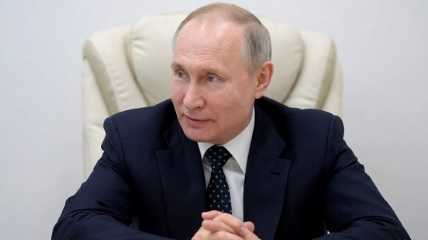
MOSCOW, Aug 26 (Reuters) - President Vladimir Putin has ordered Wagner fighters to sign an oath of allegiance to the Russian state after a deadly plane crash believed to have killed Yevgeny Prigozhin, the volatile chief of the mercenary group.
Putin signed the decree bringing in the change with immediate effect on Friday after the Kremlin said that Western suggestions that Prigozhin had been killed on its orders were an "absolute lie". The Kremlin declined to definitively confirm his death, citing the need to wait for test results.
Russia's aviation authority has said that Prigozhin was on board a private jet which crashed on Wednesday evening northwest of Moscow with no survivors exactly two months after he led a failed mutiny against army chiefs.
President Vladimir Putin sent his condolences to the families of those killed in the crash on Thursday and spoke of Prigozhin in the past tense.
He cited "preliminary information" as indicating that Prigozhin and his top Wagner associates had all been killed and, while praising Prigozhin, said he had also made some "serious mistakes."
Putin's introduction of a mandatory oath for employees of Wagner and other private military contractors was a clear move to bring such groups under tighter state control.
The decree, published on the Kremlin website, obliges anyone carrying out work on behalf of the military or supporting what Moscow calls its "special military operation" in Ukraine to swear a formal oath of allegiance to Russia.
Described in the decree as a step to forge the spiritual and moral foundations of the defence of Russia, the wording of the oath includes a line in which those who take it promise to strictly follow the orders of commanders and senior leaders.
Western politicians and commentators have suggested, without presenting evidence, that Putin ordered Prigozhin to be killed to punish him for launching the June 23-34 mutiny against the army's leadership which also represented the biggest challenge to Putin's own rule since he came to power in 1999.
Kremlin spokesman Dmitry Peskov said on Friday that the accusation and many others like it were false.
"There is now a great deal of speculation surrounding this plane crash and the tragic deaths of the plane's passengers, including Yevgeny Prigozhin. Of course, in the West, all this speculation is presented from a well-known angle," Peskov told reporters.
"All of this is an absolute lie, and here, when covering this issue, it is necessary to base yourself on facts. There are not many facts yet. They need to be established in the course of investigative actions," he said.
'WAIT FOR TEST RESULTS'
Russian investigators have opened a probe into what happened, but have not yet said what they suspect caused the plane to suddenly fall from the sky.
Nor have they officially confirmed the identities of the 10 bodies recovered from the wreckage.
Asked if the Kremlin had received official confirmation of Prigozhin's death, Peskov said on Friday: "If you listened carefully to the Russian president's statement, he said that all the necessary tests, including genetic tests, will now be carried out. The official results - as soon as they are ready to be published, will be published."
Peskov, who said Putin had not met Prigozhin recently, also said it was unclear how long the tests and investigative work would take.
It was therefore impossible to start talking about whether Putin would attend Prigozhin's funeral, Peskov said in answer to a question on the subject.
"There are no dates for the funeral yet, it is impossible to talk about it at all. The only thing I can say is that the president has a rather busy schedule at the moment."
Nigel Gould-Davies, a former British ambassador to Belarus who is now a senior fellow at the International Institute for Strategic Studies (IISS), said the funeral would be significant.
"If Putin wishes to emphasise that Prigozhin died as a traitor, he will ignore it," said Gould-Davies.
"(While) Prigozhin's supporters may use it as an opportunity to eulogise him and his critique of the Kremlin's conduct of the war -- and could strengthen the hostility of a core of Wagner loyalists towards the Kremlin," he said.
British military intelligence said on Friday there was not yet definitive proof that Prigozhin had been onboard but that it was "highly likely" he was dead.
The Pentagon has said its own initial assessment is that Prigozhin was killed.
Russia's Baza news outlet, which has good sources among law enforcement agencies, has reported that investigators are focusing on a theory that one or two bombs may have been planted on board the plane.
Asked about the future of the Wagner Group, which has a series of lucrative contracts across Africa and a contingent in Belarus training the army there but now appears leaderless, Kremlin spokesman Peskov was concise.
"I can't tell you anything now, I don't know," he said.




